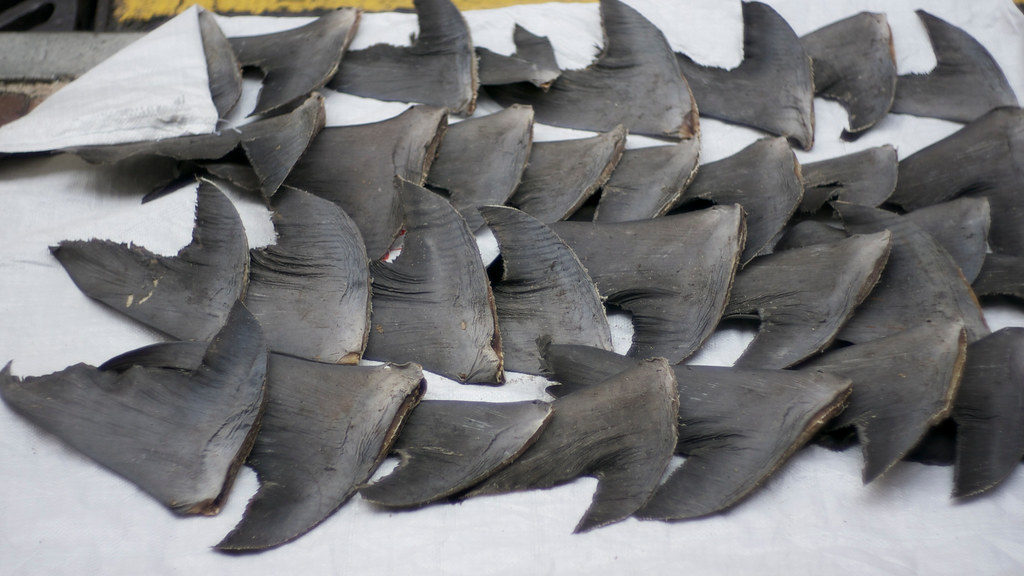Sharks are big business. They are tangled up, just like the lines used to catch them, in several gigantic fishing industries, like tuna and swordfish. Directly and indirectly, sharks are at the heart of the global fishing industry. In the United States, canned tuna is a popular and inexpensive seafood item. And it is inexpensive for a reason: many of the Asian fishing fleets that catch it use slave labor.
What little money these slaves can make comes from from selling shark fins. These fins are in high demand to make Chinese shark fin soup. So when sharks are caught as bycatch in the pursuit of tuna, the sharks, which could be freed, are instead kept and finned alive. They are thrown overboard and die excruciating deaths at the bottom of the sea. All of this horror is detailed in my book, Emperors of the Deep.

A bowl of shark fin soup. Demand for this “delicacy” is decimating shark populations. Image credit Andrew Currie, CC BY-SA 3.0.
China’s demand for shark fin soup is culturally rooted and difficult to change. However, that does not mean that consumers can only ignore the devastation of 100 million sharks killed every year. Many in the United States want to see something done to help, and there are steps that can be taken to help sharks.
Federal legislation is waiting on Congress to act. The Shark Fin Sales Elimination Act of 2019, introduced in the House as H.R.737 by Representative Sablan (D-Northern Mariana Islands) and in the Senate as S.877 by Senator Booker (D-NJ), would create a nationwide prohibition on the trade of shark fins. Every year, fins from up to 73 million sharks enter the global shark fin trade. Although the practice of shark finning is illegal in U.S. waters, the United States still participates in the shark fin trade. Shark fins continue to be imported into the country either from countries that do not have similar shark finning restrictions, from sharks finned on the high seas, or from illegal shark finning in U.S. waters. Since 2010, the United States has imported fins from 11 countries, five of which do not have any type of finning ban.

Shark fins seen drying on a sidewalk in Hong Kong. Image credit Nicholas Wang, CC BY-SA 3.0.
More than 70 percent of the most common species in the shark fin trade are at a high or very high risk of extinction. Due to the difficulty of identifying shark species based on detached and processed fins, it is easy for threatened species to end up in the shark fin market. What is equally troubling is that the trade data reported to the Food and Agricultural Organization (FAO) of the United Nations does not match the US National Oceanic and Atmospheric Administration’s (NOAA) own fin data. For example, between 2000 and 2011, NOAA reported that, on average, the United States imported 75,000 pounds of fins every year, yet the total number reported as having been exported to the U.S. by the exporting countries was a staggering 580,000 pounds —more than seven times NOAA’s amount.
Sharks, in their role as apex predators, keep oceans healthy and we need our oceans. Therefore, we should do what we can in this country to help sharks. The mission this year is to pass this bill without delay.
Featured image: a scalloped hammerhead shark, one of the species currently threatened by finning. Image credit NOAA Photo library, CC BY-SA 3.0.





